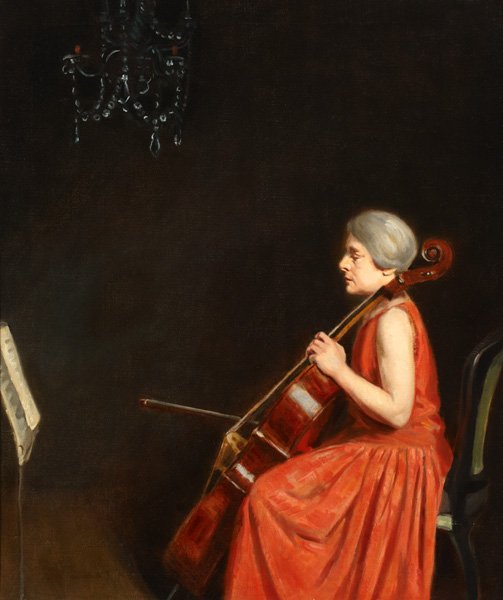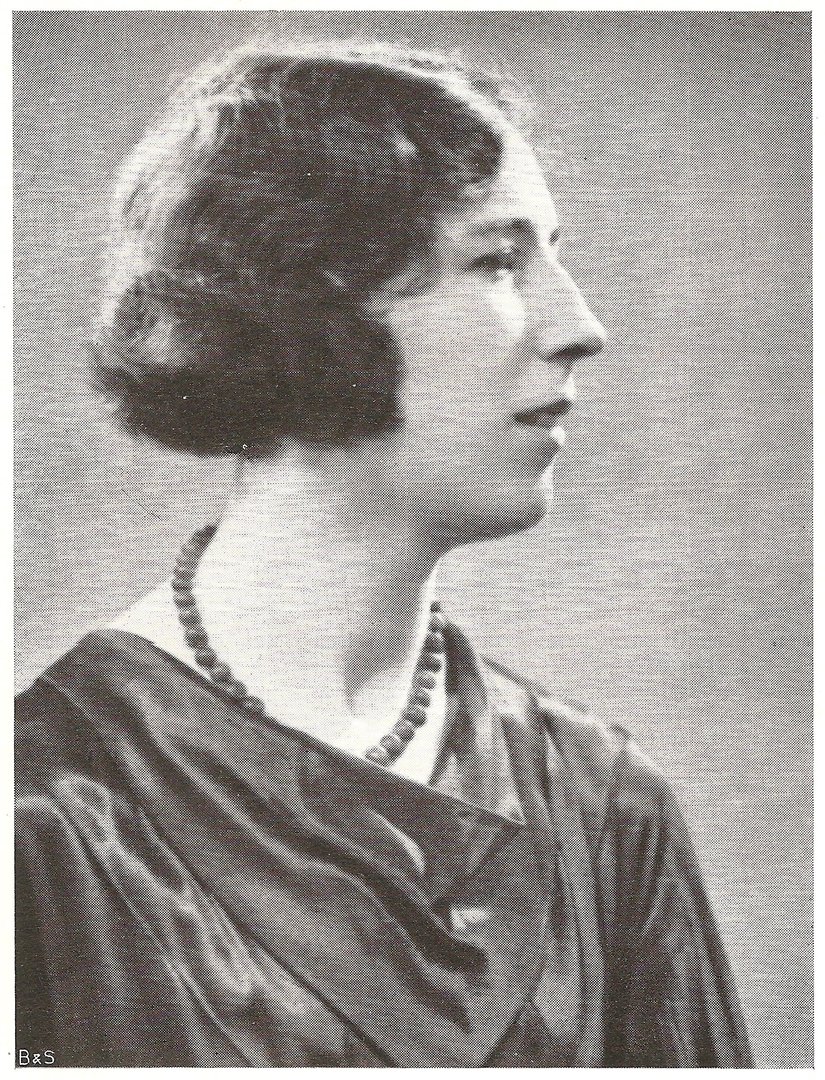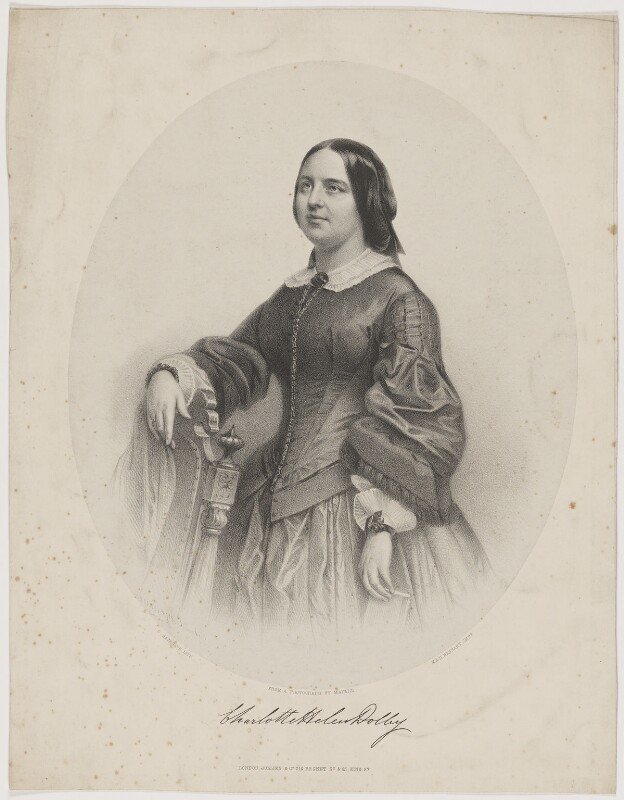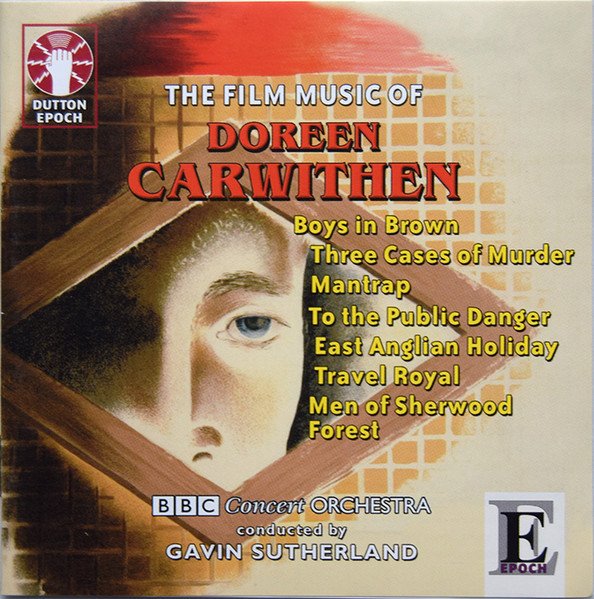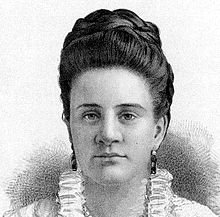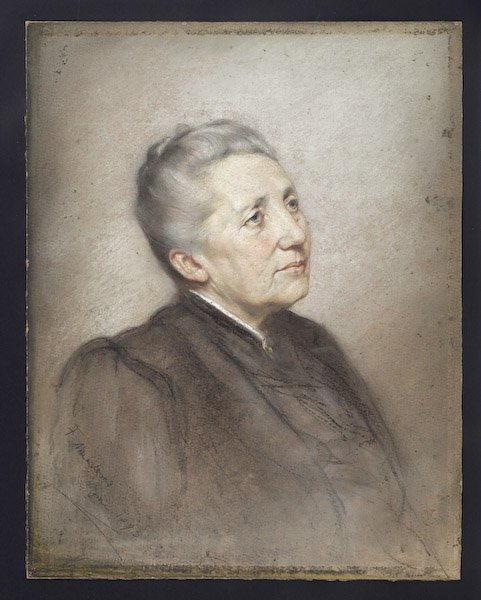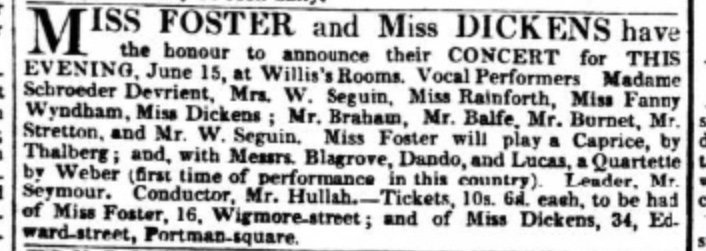Fannie Stearns Davis: Water Fantasy
“O brown brook, O blithe brook, what will you say to me
If I take off my heavy shoon and wade you childishly?
O take them off, and come to me.
You shall not fall. Step merrily!
But, cool brook, but, quick brook, and what if I should float
White-bodied in your pleasant pool, your bubbles at my throat?
If you are but a mortal maid,
Then I shall make you half afraid.
The water shall be dim and deep,
And silver fish shall lunge and leap
About you, coward mortal thing.
But if you come desiring
To win once more your naiadhood,
How you shall laugh and find me good—
My golden surfaces, my glooms,
My secret grottoes’ dripping rooms,
My depths of warm wet emerald,
My mosses floating fold on fold!
And where I take the rocky leap
Like wild white water shall you sweep;
Like wild white water shall you cry,
Trembling and turning to the sky,
While all the thousand-fringèd trees
Glimmer and glisten through the breeze.
I bid you come! Too long, too long,
You have forgot my undersong.
And this perchance you never knew:
E’en I, the brook, have need of you.
My naiads faded long ago,—
My little nymphs, that to and fro
Within my waters sunnily
Made small white flames of tinkling glee.
I have been lonesome, lonesome; yea,
E’en I, the brook, until this day.
Cast off your shoon; ah, come to me,
And I will love you lingeringly!
O wild brook, O wise brook, I cannot come, alas!
I am but mortal as the leaves that flicker, float, and pass.
My body is not used to you; my breath is fluttering sore;
You clasp me round too icily. Ah, let me go once more!
Would God I were a naiad-thing whereon Pan’s music blew;
But woe is me! you pagan brook, I cannot stay with you!”
Alice Brown: Candlemas
“ O hearken, all ye little weeds
That lie beneath the snow,
(So low, dear hearts, in poverty so low!)
The sun hath risen for royal deeds,
A valiant wind the vanguard leads;
Now quicken ye, lest unborn seeds
Before ye rise and blow.
O furry living things, adream
On winter’s drowsy breast,
(How rest ye there, how softly, safely rest!)
Arise and follow where a gleam
Of wizard gold unbinds the stream,
And all the woodland windings seem
With sweet expectance blest.
My birds, come back! the hollow sky
Is weary for your note.
(Sweet-throat, come back! O liquid, mellow throat!)
Ere May’s soft minions hereward fly,
Shame on ye, laggards, to deny
The brooding breast, the sun-bright eye,
The tawny, shining coat!”
Louise Guiney: The Kings
“A MAN said unto his Angel:
“My spirits are fallen low,
And I cannot carry this battle:
O brother! where might I go?
“The terrible Kings are on me
With spears that are deadly bright;
Against me so from the cradle
Do fate and my fathers fight.”
Then said to the man his Angel:
“Thou wavering, witless soul,
Back to the ranks! What matter
To win or to lose the whole,
“As judged by the little judges
Who hearken not well, nor see?
Not thus, by the outer issue,
The Wise shall interpret thee.
“Thy will is the sovereign measure
And only events of things:
The puniest heart, defying,
Were stronger than all these Kings.
“Though out of the past they gather,
Mind’s Doubt, and Bodily Pain,
And pallid Thirst of the Spirit
That is kin to the other twain,
“And Grief, in a cloud of banners,
And ringletted Vain Desires,
And Vice, with the spoils upon him
Of thee and thy beaten sires,—
“While Kings of eternal evil
Yet darken the hills about,
Thy part is with broken sabre
To rise on the last redoubt;
“To fear not sensible failure,
Nor covet the game at all,
But fighting, fighting, fighting,
Die, driven against the wall.””
Mildred McNeal Sweeney: Chavez
“SO hath he fallen, the Endymion of the air,
And so lies down in slumber lapped for aye.
Diana, passing, found his youth too fair,
His soul too fleet and willing to obey.
She swung her golden moon before his eyes—
Dreaming, he rose to follow—and ran—and was away.
His foot was wingèd as the mounting sun.
Earth he disdained—the dusty ways of men
Not yet had learned. His spirit longed to run
With the bright clouds, his brothers, to answer when
The airs were fleetest and could give him hand
Into the starry fields beyond our plodding ken.
All wittingly that glorious way he chose,
And loved the peril when it was most bright.
He tried anew the long-forbidden snows
And like an eagle topped the dropping height
Of Nagenhorn, and still toward Italy
Past peak and cliff pressed on, in glad, unerring flight.
Oh, when the bird lies low with golden wing
Bruisèd past healing by some bitter chance,
Still must its tireless spirit mount and sing
Of meadows green with morning, of the dance
On windy trees, the darting flight away,
And of that last, most blue, triumphant downward glance.
So murmuring of the snow: “The snow, and more,
O God, more snow!” on that last field he lay.
Despair and wonder spent their passionate store
In his great heart, through heaven gone astray,
And early lost. Too far the golden moon
Had swung upon that bright, that long, untraversed way.
Now to lie ended on the murmuring plain—
Ah, this for his bold heart was not the loss,
But that those windy fields he ne’er again
Might try, nor fleet and shimmering mountains cross,
Unfollowed, by a path none other knew:
His bitter woe had here its deep and piteous cause.
Dear toils of youth unfinished! And songs unwritten, left
By young and passionate hearts! O melodies
Unheard, whereof we ever stand bereft!
Clear-singing Schubert, boyish Keats—with these
He roams henceforth, one with the starry band,
Still paying to fairy call and far command
His spirit heed, still winged with golden prophecies.”
Margaret Cavendish: Similizing the Winds to Music
“No music’s better than the winds do make,
If all their several notes right places take:
The full, the half, the quarter-note they set;
The tenor, bass, and treble there are met.
The northern wind a strong big bass doth sing;
The east is sweet, like a6 small treble string;
The south and west the tenor’s parts do take,
And so, all joined, a fine sweet consort make.
All that this music meets, it moves to dance,
If bodies yielding be with compliance.
The clouds do dance in circle, hand in hand,
Where in the midst the worldly ball doth stand.
The seas do dance with ships upon their back,
Where, cap’ring high, they many times do wrack,
As men which venture on the ropes to dance
Oft tumble down, if they too high advance.
But dust, like country clowns, no measure keep,
But rudely run together on a heap.
Trees grave and civil first bow down their head
Towards the Earth, then every leaf outspread,
And every twig each other will salute;
Embracing oft, they kiss each other’s root.
And so each other plant and flower gay
Will sweetly dance when as the winds do play.
But when they’re out of tune, they discord make,
Disorder all—nothing its place can take.
But when Apollo with his beams doth play,
He places all again in the right way.”
Elizabeth Akers Allen: Street Music
“Methought a sweet sound from the street uprose,—
And as I pause, and strive again to hear,
‘St Patrick’s Day’ draws softly to its close,
And ‘Jordan’s’ waves flow sweetly to my ear,
What though from humble source the chorus floats?
Music is music, and I listen still;
I have ‘an ear’, — ay, two! — Even jews-harp notes
Pass current with me, hear them where I will,
A slight Italian boy, with jetty hair
Shading dark eyes, grinds out the melody,
Pulverized music! — In his garb and air
I read of sunnier lands beyond the sea,
And, dreaming, wander to a fairer clime,
Recalled, too suddenly, by — ‘If you please, a dime!’”
Kate Simpson Hayes: My Song
“I could not sing unless my song
Had in its symphony one broken string;
I could not say the thoughts that in me rise
Unless my heart had been a broken thing.
Why is it that the voice of Song so yields
Mute music till the heart hath bled?
Why should we find most fair and far-off fields
By thorny by-paths led?
But if this little weakling song of mine
Might carry cheer to one, lone, grieving soul,
Most gladly would I offer Hope’s bright wine
And, smiling, drink the lees left in the bowl:
For I have in the darkness found some light—
Some sunshine seen in shadowed evening hours,
And I have found throughout the lonely night
Some perfumed breathings from wild garden bowers.
And I were ingrate not to send it on,
Such echo of what music in me lies,
For it may bring to some o’er darkened dawn
The brightening glow that comes with morning skies.
So, go you, little broken Song,
And carry to some heart in bitter pain
Only my lute’s light laughter. Make thou strong
The weak of heart and bid them smile again.”
Jill Bialosky: Music is TIme
“Music is time, said the violin master.
You can’t miss the stop or you’ll miss the train.
One, two, three, four, one, two, three, four,
one, two, three, four.
She clapped her hands together
as the boy moved the bow across the strings.
One, two, three, four, one, two, three, four,
one, two, three, four, the violin master shouted,
louder and more shrill so that her voice
traveled through the house like a metronome,
guiding him, commanding him to translate the beat,
to trust his own internal rhythm.
Good boy, she said.
See how hard you have to be on yourself?
How will your violin know who you are
unless you make it speak? ”
Lola Ridge: Under-Song
“There is music in the strong
Deep-throated bush,
Whisperings of song
Heard in the leaves’ hush -
Ballads of the trees
In tongues unknown -
A reminiscent tone
On minor keys…
Boughs swaying to and fro
Though no winds pass…
Faint odors in the grass
Where no flowers grow,
And flutterings of wings
And faint first notes,
Once babbled on the boughs
Of faded springs.
Is it music from the graves
Of all things fair
Trembling on the staves
Of spacious air -
Fluted by the winds
Songs with no words -
Sonatas from the throats
Of master birds?
One peering through the husk
Of darkness thrown
May hear it in the dusk -
That ancient tone,
Silvery as the light
Of long dead stars
Yet falling through the night
In trembling bars.”
Amy Redpath Roddick: Our Art
“To be great is not our fate
So we try to gain applause,
To attract, by being in fact,
What perhaps we really are,
Somewhat hazy, if not quite crazy.
See the pictures which we hang,
Daubs of paint, now bright, now faint,
Houses leaning, quaint designs,
Figures queer and how we sneer
At what the common people like!
Though our verse may seem too terse,
Somewhat odd and not quite nice;
Yet it’s fine, each single line,
Free from metre and from rhyme,
It’s intense, without much sense!
Music may be passing strange,
Tunes appear, then disappear
In a hurricane of sound,
Now a squeak, a louder shriek,
Rockets bursting, grand finale!
With clasped hands the critic stands
Talking much of atmosphere,
Looking wise through half-closed eyes,
He reveals our very soul.
With disdain for all that’s plain
He explains our meaning well;
Listeners smile, they love his style
As they love our modern art,
Whose true tone, we can’t disown,
Only mystics understand!”
May Lewis: Music
“A broken heart does not always give
A cracked sound -
there are some that spin a ragged tune,
like a merry-go-round;
Or the tumbling trill that a hurdy-gurdy
Scatters and flings;
Merry-go-rounds and hurdy-gurdys
Are sad things.”
Diane Wakoski: Thanking My Mother for Piano Lessons
“The relief of putting your fingers on the keyboard,
as if you were walking on the beach
and found a diamond
as big as a shoe;
as if
you had just built a wooden table
and the smell of sawdust was in the air,
your hands dry and woody;
as if
you had eluded
the man in the dark hat who had been following you
all week;
the relief
of putting your fingers on the keyboard,
playing the chords of
Beethoven,
Bach,
Chopin
in an afternoon when I had no one to talk to,
when the magazine advertisement forms of soft sweaters
and clean shining Republican middle-class hair
walked into carpeted houses
and left me alone
with bare floors and a few books
I want to thank my mother
for working every day
in a drab office
in garages and water companies
cutting the cream out of her coffee at 40
to lose weight, her heavy body
writing its delicate bookkeeper’s ledgers
alone, with no man to look at her face,
her body, her prematurely white hair
in love
I want to thank
my mother for working and always paying for
my piano lessons
before she paid the Bank of America loan
or bought the groceries
or had our old rattling Ford repaired.
I was a quiet child,
afraid of walking into a store alone,
afraid of the water,
the sun,
the dirty weeds in back yards,
afraid of my mother’s bad breath,
and afraid of my father’s occasional visits home,
knowing he would leave again;
afraid of not having any money,
afraid of my clumsy body,
that I knew
no one would ever love
But I played my way
on the old upright piano
obtained for $10,
played my way through fear,
through ugliness,
through growing up in a world of dime-store purchases,
and a desire to love
a loveless world.
I played my way through an ugly face
and lonely afternoons, days, evenings, nights,
mornings even, empty
as a rusty coffee can,
played my way through the rustles of spring
and wanted everything around me to shimmer like the narrow tide
on a flat beach at sunset in Southern California,
I played my way through
an empty father’s hat in my mother’s closet
and a bed she slept on only one side of,
never wrinkling an inch of
the other side,
73waiting,
waiting,
I played my way through honors in school,
the only place I could
talk
the classroom,
or at my piano lessons, Mrs. Hillhouse’s canary always
singing the most for my talents,
as if I had thrown some part of my body away upon entering
her house
and was now searching every ivory case
of the keyboard, slipping my fingers over black
ridges and around smooth rocks,
wondering where I had lost my bloody organs,
or my mouth which sometimes opened
like a California poppy,
wide and with contrasts
beautiful in sweeping fields,
entirely closed morning and night,
I played my way from age to age,
but they all seemed ageless
or perhaps always
old and lonely,
wanting only one thing, surrounded by the dusty bitter-smelling
leaves of orange trees,
wanting only to be touched by a man who loved me,
who would be there every night
to put his large strong hand over my shoulder,
whose hips I would wake up against in the morning,
whose mustaches might brush a face asleep,
dreaming of pianos that made the sound of Mozart
and Schubert without demanding
that life suck everything
out of you each day,
without demanding the emptiness
of a timid little life.
I want to thank my mother
for letting me wake her up sometimes at 6 in the morning
when I practiced my lessons
and for making sure I had a piano
to lay my school books down on, every afternoon.
I haven’t touched the piano in 10 years,
perhaps in fear that what little love I’ve been able to
pick, like lint, out of the corners of pockets,
will get lost,
slide away,
into the terribly empty cavern of me
if I ever open it all the way up again.
Love is a man
with a mustache
gently holding me every night,
always being there when I need to touch him;
he could not know the painfully loud
music from the past that
his loving stops from pounding, banging,
battering through my brain,
which does its best to destroy the precarious gray matter when I
am alone;
he does not hear Mrs. Hillhouse’s canary singing for me,
liking the sound of my lesson this week,
telling me,
confirming what my teacher says,
that I have a gift for the piano
few of her other pupils had.
When I touch the man
I love,
I want to thank my mother for giving me
piano lessons
all those years,
keeping the memory of Beethoven,
a deaf tortured man,
in mind;
of the beauty that can come
from even an ugly
past.”
Anne Brontë: Music on Christmas Morning
“MUSIC I love–but never strain
Could kindle raptures so divine,
So grief assuage, so conquer pain,
And rouse this pensive heart of mine–
As that we hear on Christmas morn,
Upon the wintry breezes borne.
Though Darkness still her empire keep,
And hours must pass, ere morning break;
From troubled dreams, or slumbers deep,
That music kindly bids us wake:
It calls us, with an angel’s voice,
To wake, and worship, and rejoice;
To greet with joy the glorious morn,
Which angels welcomed long ago,
When our redeeming Lord was born,
To bring the light of Heaven below;
The Powers of Darkness to dispel,
And rescue Earth from Death and Hell.
While listening to that sacred strain,
My raptured spirit soars on high;
I seem to hear those songs again
Resounding through the open sky,
That kindled such divine delight,
In those who watched their flocks by night.
With them, I celebrate His birth–
Glory to God, in highest Heaven,
Good-will to men, and peace on Earth,
To us a Saviour-king is given;
Our God is come to claim His own,
And Satan’s power is overthrown!
A sinless God, for sinful men,
Descends to suffer and to bleed;
Hell must renounce its empire then;
The price is paid, the world is freed,
And Satan’s self must now confess,
That Christ has earned a Right to bless:
Now holy Peace may smile from heaven,
And heavenly Truth from earth shall spring:
The captive’s galling bonds are riven,
For our Redeemer is our king;
And He that gave his blood for men
Will lead us home to God again.”
Babette Deutsch: Piano Recital
“(for Maro Ajemian and John Cage)
Her drooping wrist, her arm
Move as a swan should move,
First singing when death dawns
Upon the plumaged flesh.
But here no swan wings thresh,
No river runs. A woman
Strikes hidden strings in love.
Now slow-as fronds of palms-
Her fingers on the keys.
Lifted, her listening arms
Ponder the theme afresh,
until it seems young flesh
Is momentarily transmuted
To echo’s effigy.
No no-the risen hands
Pounce on the keys, destroy
The hush, rush on, command
The blacks, the ivories,
in flight now with the keys
To grief’s unwindowed prison,
To the low gate of joy.
She leans with sparkling looks
Toward the dark wood, her strong
Hands work as gleaners should.
Then, as who would caress
A birdlike wordlessness,
She stoops-to drink the meaning
At the still brink of song.”
Kate Seymour MacLean: Forgotten Songs
“There is a splendid tropic flower which flings
Its fiery disc wide open to the core—
One pulse of subtlest fragrance—once a life
That rounds a century of blossoming things
And dies, a flower’s apotheosis: nevermore
To send up in the sunshine, in sweet strife
With all the winds, a fountain of life flame,
A winged censer in the starlight swung
Once only, flinging all its wealth abroad
To the wide deserts without shore or name
And dying, like a lovely song, once sung
By some dead poet, music’s wandering ghost,
Æons ago blown out of life and lost,
Remembered only in the heart of God.”
Ella Wheeler Wilcox: Music in the Flat
“When Tom and I were married, we took a little flat;
I had a taste for singing and playing and all that.
And Tom, who loved to hear me, said he hoped I would not stop
All practice, like so many wives who let their music drop.
So I resolved to set apart an hour or two each day
To keeping vocal chords and hands in trim to sing and play.
The second morning I had been for half an hour or more
At work on Haydn’s masses, when a tap came at my door.
A nurse, who wore a dainty cap and apron, and a smile,
Ran down to ask if I would cease my music for awhile.
The lady in the flat above was very ill, she said,
And the sound of my piano was distracting to her head.
A fortnight’s exercises lost, ere I began them, when,
The following morning at my door, there came that tap again;
A woman with an anguished face implored me to forego
My music for some days to come—a man was dead below.
I shut down my piano till the corpse had left the house,
And spoke to Tom in whispers and was quiet as a mouse.
A week of labor limbered up my stiffened hand and voice,
I stole an extra hour from sleep, to practice and rejoice;
When, ting-a-ling, the door-bell rang a discord in my trill—
The baby in the flat across was very, very ill.
For ten long days that infant’s life was hanging by a thread,
And all that time my instrument was silent as the dead.
So pain and death and sickness came in one perpetual row,
When babies were not born above, then tenants died below.
The funeral over underneath, some one fell ill on top,
And begged me, for the love of God, to let my music drop.
When trouble went not up or down, it stalked across the hall,
And so in spite of my resolve, I do not play at all.”
Phillis Wheatley: A Hymn to the Evening
“Soon as the sun forsook the eastern main
The pealing thunder shook the heav’nly plain;
Majestic grandeur! From the zephyr’s wing,
Exhales the incense of the blooming spring.
Soft purl the streams, the birds renew their notes,
And through the air their mingled music floats.
Through all the heav’ns what beauteous dies are spread!
But the west glories in the deepest red:
So may our breasts with ev’ry virtue glow,
The living temples of our God below!
Fill’d with the praise of him who gives the light,
And draws the sable curtains of the night,
Let placid slumbers sooth each weary mind,
At morn to wake more heav’nly, more refin’d;
So shall the labours of the day begin
More pure, more guarded from the snares of sin.
Night’s leaden sceptre seals my drowsy eyes,
Then cease, my song, till fair Aurora rise.”
Jean Blewett: When Paganini Plays
“‘Dawn!’ laughs the bow, and we straight see the sky,
Crimson, and golden, and gray,
See the rosy cloudlets go drifting by,
And the sheen on the lark as, soaring high,
He carols to greet the day.
Fast moves the bow o’er the wonderful strings-
We feel the joy in the air-
’Tis alive with the glory of growing things,
With wild honeysuckle that creeps and clings,
Rose of the briar bush-queen of the springs-
Anemones frail and fair!
We listen, and whisper with laughter low,
’It voices rare gladness, that ancient bow!’
Then, sad as the plaint of a child at night-
A child aweary with play-
The falling of shadows, a lost delight,
The moaning of watchers counting the flight
Of hours ‘twixt the dark and day.
It echoes the cry of a broken heart,
It grieves o’er a ‘might have been,’
It holds all the passionate tears that start
When our heaven and our earth drift far apart,
And the way lies dark between.
It stills all our laughter, and whispers low-
’Tis heart-strings it plays on, that ancient bow!”
Alice Meynell: Chimes
“Brief on a flying night,
From the shaken tower,
A flock of bells take flight,
And go with the hour.
Like birds from the cote to the gales,
Abrupt—oh, hark!—
A fleet of bells set sails,
And go to the dark.
Sudden the cold airs swing:
Alone, aloud,
A verse of bells takes wing
And flies with the cloud.”
Rose Fyleman: The Fairy Flute
“My brother has a little flute
Of gold and ivory,
He found it on a summer night
Within a hollow tree.
He plays it every morning
And every afternoon,
And all the little singing-birds
Listen to the tune.
He plays it in the meadows,
And everywhere he walks
The flowers start a-nodding
And dancing on their stalks.
He plays it in the village,
And all along the street
The people stop to listen,
The music is so sweet.
And none but he can play it
And none can understand,
Because it is a fairy flute
And comes from Fairyland.”
